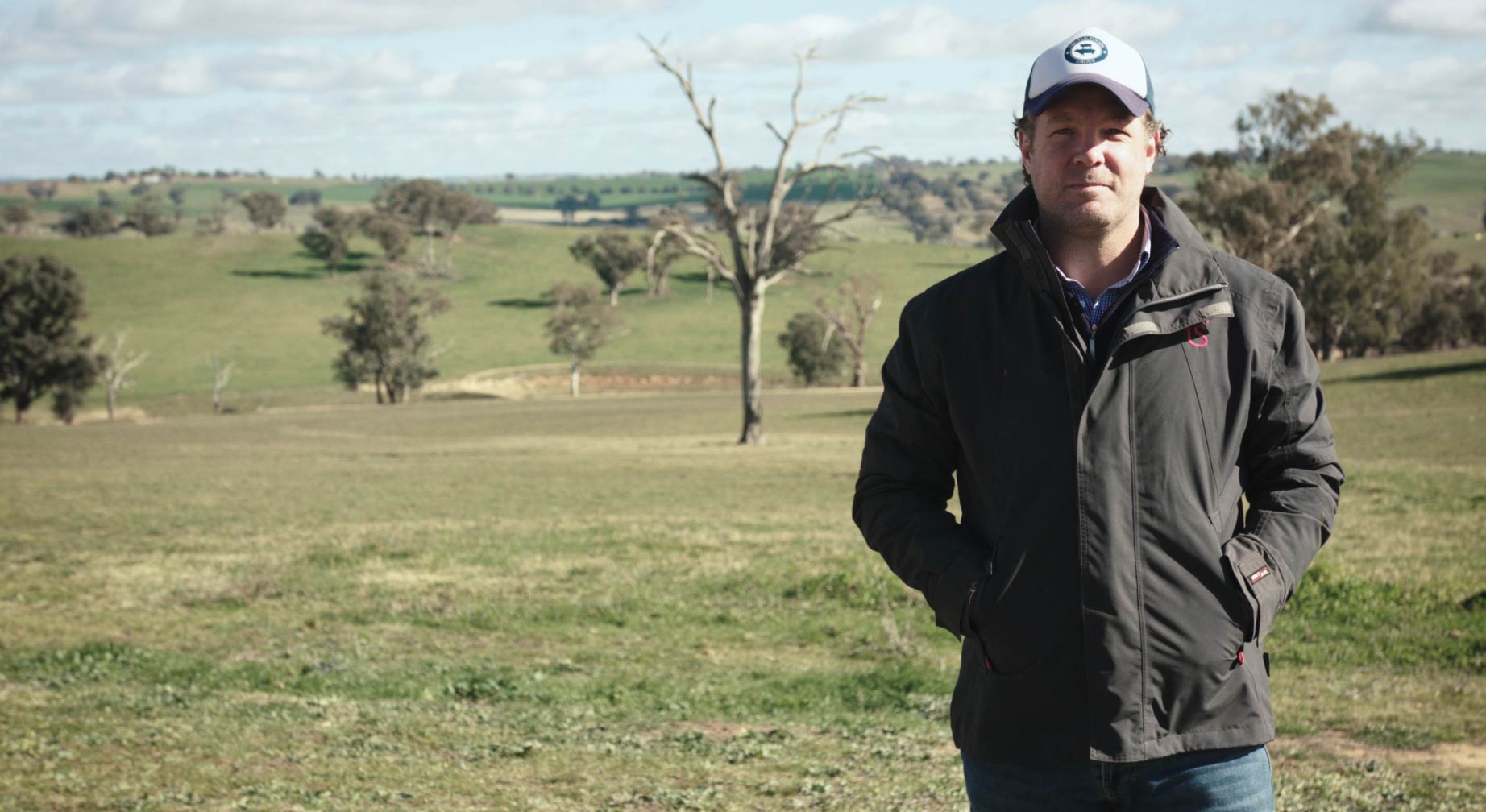Turning data into dollars

Argyle Foods Group Co-CEO Lachlan Graham
An innovative collaboration between Integrity Systems Company (ISC) and Argyle Foods Group has shown that connecting data to provide information about livestock at each point in their lifetime can inform decisions for increased profitability within the red meat supply chain.
By linking individual, live animal performance data gathered on farm to supply chain traceability data, the project has demonstrated that an individual lifetime performance dataset can be created for livestock. This data can be drawn from third party platforms and connected in the MLA Group Data Platform via the KPMG Origins track-and-trace platform to produce powerful new insights for decision makers within red meat businesses.
This is one of the ways in which the MLA Group Data Platform is connecting the supply chain data to support optimal supply chain performance for the Australian red meat industry.
Read on to find out more.
Individual animal data for decisions
Vertically integrated red meat processing operation Argyle Foods Group uses farm management software AgriWebb to keep careful control over the production of their premium beef and sheep herds on the Argyle Pastoral property.
Using individual on-farm animal management, Argyle Foods Group has instant access to an extensive range of data on individual animals owned, including genetics, animal treatment records and costs and days spent on farm.
Traditionally, this data has been used by Argyle to verify the product claims and premium quality of the Australian beef and lamb products they produce.
Now, Argyle Foods Group Co-CEO Lachlan Graham explains, this on-farm data has been linked with carcase feedback data through the project to create lifetime performance data sets for each individual animal produced by the operation.
“Through working with Integrity Systems Company, we have been able to integrate the data collected on-farm in Agriwebb with carcase feedback from Livestock Data Link,” Lachlan said.
“This data was connected in the MLA Group Data Platform via the KPMG Origins Platform, which will give us excellent automated feedback that doesn’t end when the animal leaves the farm.”
“Previously, this was a very manual process of pulling data from many different sources.”
Linking data, lifting profits
According to Lachlan, connecting on-farm data with carcase feedback will provide powerful new insights into animal performance for business decision making.
“If we can incorporate real time data on livestock performance, we know exactly what the animal has returned over and above just their carcase weight and value,” Lachlan said.
“It gives us incredibly good feedback from a profit and loss perspective, as well as excellent guidance and information on where we should focus our purchasing and procurement for livestock coming into the farms.”
“It also gives us guidance on how many days on farm is optimal and what other management techniques on farm will lead to better performance.”
“It’s a real holistic approach to whole farm and livestock management to get the best outcome and the best financial returns.”
Some of the new information Argyle and ISC have identified that these data linkages could provide for businesses includes:
- the distance an animal has travelled across its life and the impact this has on its meat quality
- the number of movements an animal has made in its lifetime and the impact this had on its meat quality
Tracking carbon, delivering value
In the future, Lachlan predicts the platform will be able to expand to provide a range of other key data, including the carbon footprint left by animals produced.
“We’re really focusing on our carbon position, and with this same data integration work, in the next couple of years the platforms could incorporate information on the carbon footprint of those animals as they’re processed,” Lachlan said.
“That’s pretty unique and that’s where the biggest payback may come from for our business.”
Lachlan said the increasing range of livestock data that can be connected through the MLA Group Data Platform via KPMG Origins will prove invaluable for other producers and businesses in the red meat industry.
“I think every producer is going to be able to benefit from what we’ve being doing here with this data integration.”
“If producers can get better feedback above and beyond the hot standard carcase weight that they get paid on, that will allow them to make better decisions and more profitable decisions in terms of what they do and how they run their livestock.”
“It’s such an opportunity – they can’t make those big improvements without access to the data.”
Insights for impact
ISC CEO Dr Jane Weatherley also stressed the importance of the project in creating new data for more profitable decision making within the red meat supply chain.
“Being able to create lifetime performance datasets for individual animals unlocks a huge range of opportunities for businesses in the red meat supply chain,” Jane said.
“Connecting data in this way produces enhanced information about livestock at each point in their lifetime, providing the insights that businesses need to make informed decisions for maximum profitability.”
“Data and insights are key to modern business decision making in the red meat industry and the MLA Group Data Platform is leading the way when it comes to collating and linking data that will increase value chain efficiency and profit,” Jane said.
Farm management systems or agricultural data systems who are looking to explore opportunities to work with the MLA Group Data Platform should contact ISC at nleahy@integritysystems.com.au.